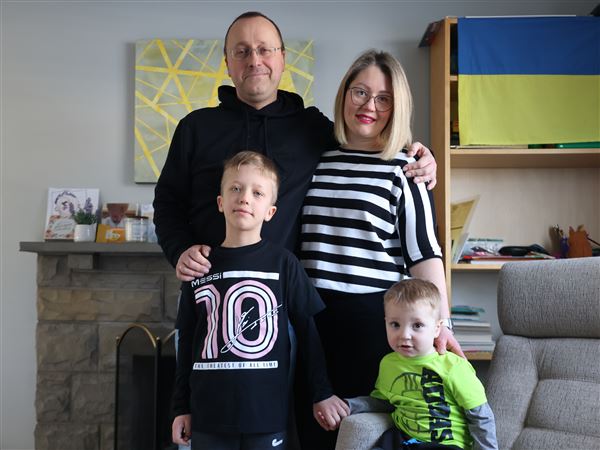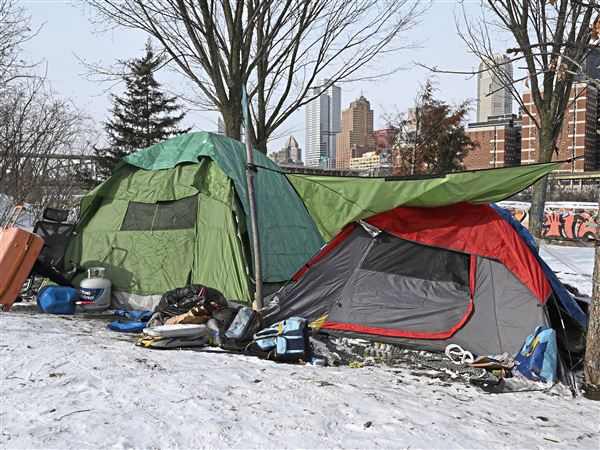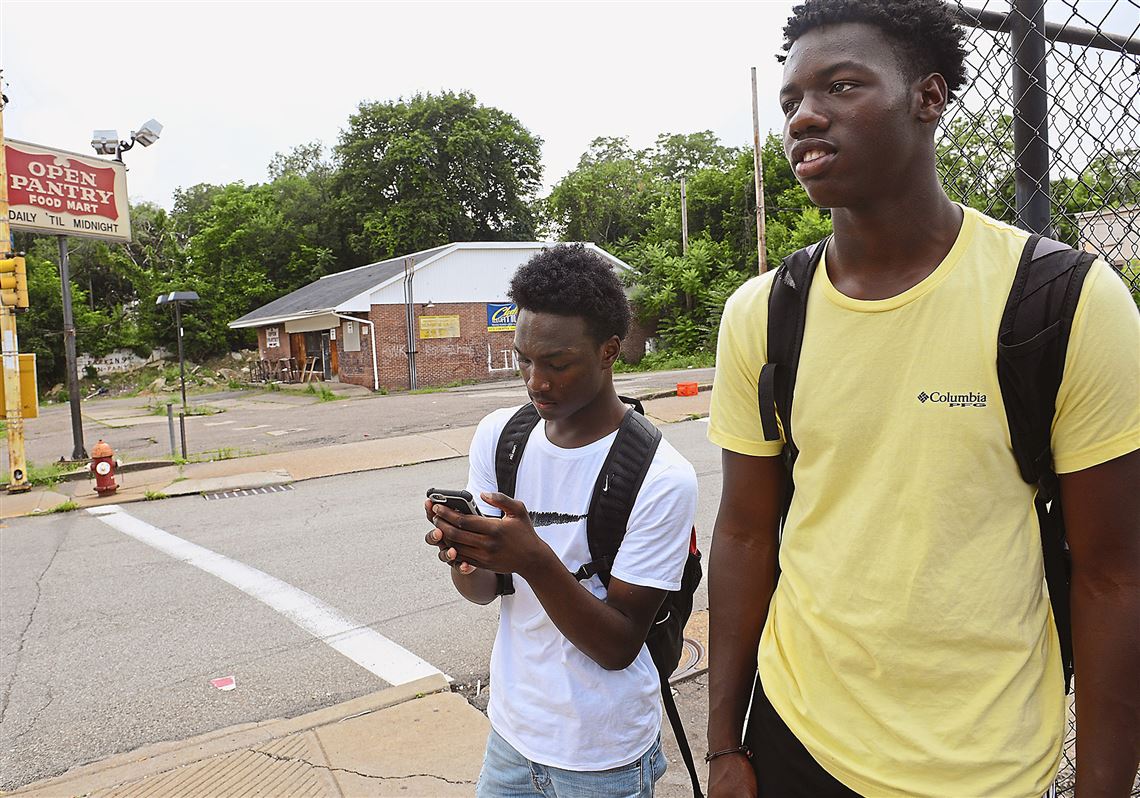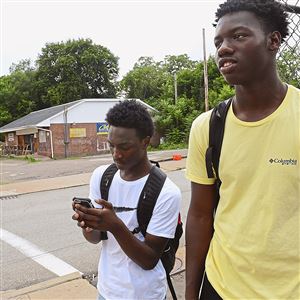This summer’s Learn & Earn program offered by the nonprofit Youth Enrichment Services is doing real-world research about lead exposure in Pittsburgh’s Lincoln-Lemington community. While developing a health education program, the 20 teenagers — most from Pittsburgh city schools — are improving academic and social skills as well.
Denise Jones, YES program director, serves as project manager. The students are divided into community engagers (who have conversations with residents and build relationships with them); investigators (who interview families and develop and produce health education materials); disseminators (who put together flyers and pamphlets to share information with the community); and analyzers (who use a computerized geographic information system in as they collect and then analyze data on how the environment influences lead exposure, such as the age and quality of housing, by location).
Willie Knight, 16, a Westinghouse Academy junior this fall, said the goal of the analyzers is to understand how the built environment influences lead exposure in Lincoln-Lemington and also to understand how people socialize in the neighborhood. Together with Charles Powell, 14, a Barack Obama Academy of International Studies sophomore, they were counting patrons of two neighborhood stores at a busy intersection one recent afternoon.
“We’re setting up for other groups; it’s a step before they go house to house,” Willie said.
He said a trip to Flint, Mich., in June taught him a lot about the water crisis there, how corrosive chemicals led to contaminated water. And how rescue efforts sometimes fell short: “One man with two kids got six cases of water a day, but it wasn’t enough.” They had hands-on experience in a community garden there and learned about the process of replacing water lines containing lead.
Now, he said, he would tell people to protect themselves: “Get lead levels checked if you move into a house. For an older person, it’s not an issue.”
Charles said he’s familiar with the hazard of lead in paint through his father’s work with the Urban Redevelopment Authority.
“They ask if there are young children in the home. People taking old paint out wear masks,” he said. “They use power hoses to clean out the dust,” he said, describing the wet cleaning method that is the standard for lead-safe home remodeling.
By late July, the group had already been instructed about the health hazards from lead exposure by Karen Hacker, director of the Allegheny County Health Department. In the Flint trip, they talked to people affected by the lead contamination in the water supply there and to those who worked to bring solutions to the crisis, including the mayor, urban gardeners, contractors and community activists. They learned about the context in which the crisis happened, Ms. Jones said.
“As soon as the students understood the social inequity, the marginalization of different communities, they could see the impact more directly… When they engage with the [Lincoln-Lemington] families they will learn more.”
The teen investigators plan interviews with 20 families in the neighborhood, she said. Pulling the information together, the students plan to present a health education forum Aug. 5 at the regular monthly Lincoln-Lemington community meeting.
Jill Daly: jdaly@post-gazette.com, 412-263-1596.
First Published: August 1, 2017, 4:00 a.m.



















